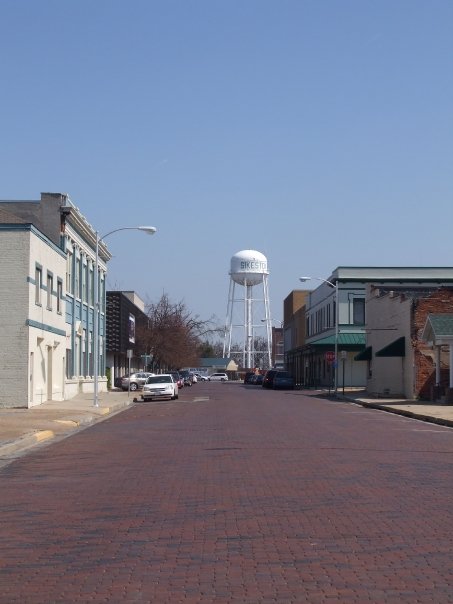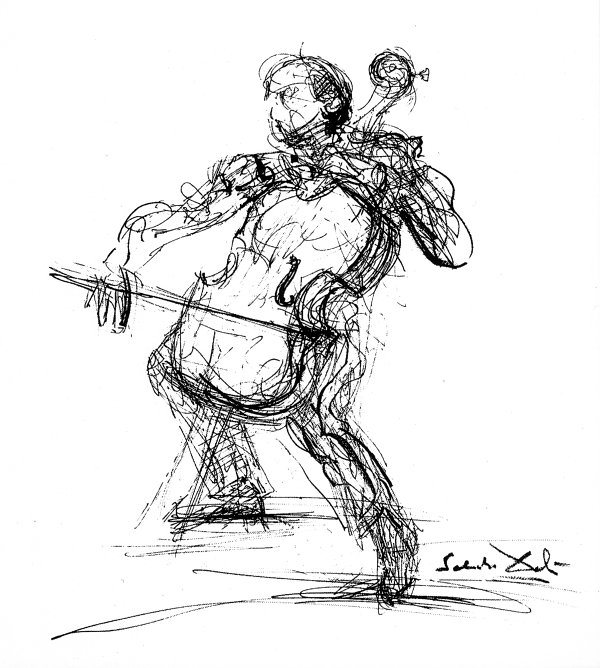I’ve never won a prize in my life–none of any consequence, at least–but Pops: A Life of Louis Armstrong, which was nominated earlier this year for an NAACP Image Award and a Pulitzer, is now up for an award from the Jazz Journalists Association. It’s one of five books published in 2009 that have been nominated in the Best Book About Jazz category. The competition is stiff, and I don’t expect to bring home the bacon, but it’s always nice to be asked.
Alas, I won’t be able to come to the ceremony on June 14. Mrs. T and I will be flying out to the Oregon Shakespeare Festival that morning. I’ll be there in spirit, though!
Archives for April 2010
TT: Almanac
“Great art is the contempt of a great man for small art.”
F. Scott Fitzgerald, notebook entry, 1945
TT: Ties that bind
I’ll be speaking about Pops: A Life of Louis Armstrong at the Kansas City Public Library on May 6, then flying from there to Chicago to see plays with Mrs. T and Our Girl. First, though, I’m going to spend a few days in Smalltown, U.S.A., at the end of which I’ll rent a car and drive north to St. Louis and west to Kansas City. That’s a long haul, but there’s no good way to get from Smalltown to Kansas City other than by car–the only way you can fly there is if you happen to own a plane–and I need to see my family and walk the streets of the place I know best.
 Between Pops and The Letter, I was so busy last year that I didn’t get to visit Smalltown as often as usual. I have a sneaking feeling that I’m not going to have a whole lot of time on my hands in the next few years to come, so I figure I’d better grab any reasonable opportunity to go there that presents itself. This’ll do.
Between Pops and The Letter, I was so busy last year that I didn’t get to visit Smalltown as often as usual. I have a sneaking feeling that I’m not going to have a whole lot of time on my hands in the next few years to come, so I figure I’d better grab any reasonable opportunity to go there that presents itself. This’ll do.
The strength of my home ties is one of the many things that sets me apart from most of the people among whom I live and work. I must be the least alienated intellectual (if that’s what I am–it’s not a word I care to use to describe myself) ever to set up shop in New York City. I don’t think I have any particular illusions about Smalltown, and I wouldn’t want to try to live there anymore–you have to drive too far to see a play–but every once in a while I find myself all but overwhelmed by the desire to be there. While I’m sure this is mostly because my mother and brother and sister-in-law still live in Smalltown, that’s not the only reason, not by a long shot. Even though I’ve lived in Manhattan and its environs for a quarter-century now, I’ve never quite managed to persuade myself that I truly belong here, that I am of the city, citified.
I once wrote a book in which I tried to put this feeling into words:
I am glad to have two homes, glad to be able to catch a cab outside Grand Central Station and, six hours later, step out of a rented car and stroll up the driveway to the back door of my parents’ house and sleep in the bedroom where I slept as a child. Once I thought I would spend the rest of my life in a place like that. I did not know when I went off to college that I would someday stand at both ends of the long road that stretched invisibly before me, beckoning vainly across the continent to myself. I am like a million other Americans who grew up and moved away from the small towns of their childhood. We cannot go back; we are not at home where we are. We are exiles from the lost heart of the land we love.
I wrote that paragraph in 1991. I still feel that way, pretty much.
* * *
Pat Metheny, a fellow Missourian, plays “Letter from Home”:
TT: Almanac
“The way to determine whether you have talent is to rummage through your files and see if you have written anything; if you have, and quite a lot, then the chances are you have the talent to write more. If you haven’t written anything, you do not have the talent because you don’t want to write. Those who do can’t help themselves.”
George V. Higgins, On Writing
DENYING SHAKESPEARE
“I am, as should be apparent, poking fun at those benighted souls who believe that someone other than William Shakespeare–the most prominent candidates being Francis Bacon and the Earl of Oxford–wrote Hamlet, Macbeth and Romeo and Juliet. In a saner world, nobody would need to poke fun at them, for nobody would give them the time of day, there being no credible evidence whatsoever to support their claims…”
TT: Good rockin’ tonight
I report on two satisfying shows in this week’s Wall Street Journal drama column, Million Dollar Quartet and Keen Company’s off-Broadway revival of I Never Sang for My Father. Here’s an excerpt.
* * *
Good clean rockabilly fun has come to Broadway in the form of “Million Dollar Quartet,” an unpretentious, engagingly energetic staged concert with just enough story to qualify it as a jukebox musical. The subject is the celebrated evening in 1956 when Johnny Cash, Jerry Lee Lewis, Carl Perkins and Elvis Presley got together at Sam Phillips’ recording studio in Memphis for an informal pre-Christmas jam session. These pop-music giants are respectively portrayed by Lance Guest, Levi Kreis, Robert Britton Lyons and Eddie Clendening, four accomplished musicians who evoke their legendary models without stooping to literal imitation. Put them together and you get a hell of a band….
Don’t go to “Million Dollar Quartet” looking for great acting. Three members of the front line are not professional actors (Mr. Guest is the ringer) and the book, by Colin Escott and Floyd Mutrux, is tissue-thin. This is the kind of show that goes flat whenever the characters stop singing and start talking. Fortunately, they do plenty of the former and not too terribly much of the latter….
How good must a play be to make it worth seeing? It certainly needn’t be a masterpiece. Robert Anderson’s “I Never Sang for My Father,” which had a modest but respectable run on Broadway in 1968 and was then turned into a modestly successful film, is a post-“Glass Menagerie” kitchen-sink drama about an aging father (Keir Dullea) and his angry, alienated son (Matt Servitto). Though devoid of poetry, it’s so true to life that you’ll wince at every other line, and Keen Company’s revival is as satisfying as a meat-and-potatoes dinner whipped up by a five-star chef….
* * *
Read the whole thing here.
TT: Shakespeare denial
 I’m one of many people who’s read and been impressed by James Shapiro’s Contested Will: Who Wrote Shakespeare? In tomorrow’s Wall Street Journal “Sightings” column I talk about the book, and the phenomenon that inspired it. I was inspired in turn by something that struck me while reading Contested Will, though Shapiro himself didn’t get around to mentioning it: Shakespeare is, so far as I know, the only major artist since Homer whose authorship of the works for which he is remembered has been systematically questioned. Why? Why the Bard and not, say, Bach?
I’m one of many people who’s read and been impressed by James Shapiro’s Contested Will: Who Wrote Shakespeare? In tomorrow’s Wall Street Journal “Sightings” column I talk about the book, and the phenomenon that inspired it. I was inspired in turn by something that struck me while reading Contested Will, though Shapiro himself didn’t get around to mentioning it: Shakespeare is, so far as I know, the only major artist since Homer whose authorship of the works for which he is remembered has been systematically questioned. Why? Why the Bard and not, say, Bach?
If that question piques your curiosity, pick up a copy of Saturday’s Journal and see what I have to say.
UPDATE: Read the whole thing here.
TT: Almanac
“Selfishness must always be forgiven, you know, because there is no hope of a cure.”
Jane Austen, Mansfield Park
